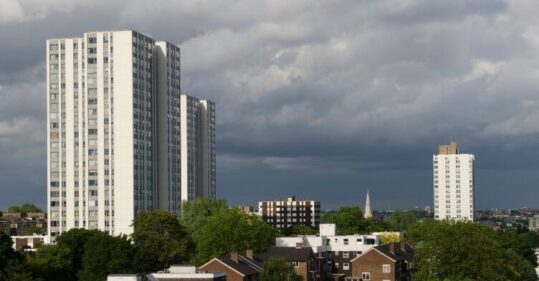‘Urgent need’ to increase MMR vaccination in deprived areas of London

Fewer than 60% of children receive their first MMR vaccine on time in parts of London, putting these areas at high risk of a measles outbreak, research has shown.
A study undertaken by Queen Mary University in London found that there has been an increase in the number of children missing their first MMR vaccination in areas of northeast London, and uptake of the vaccine has got worse since the Covid-19 pandemic.
‘Hotspots’- where measle outbreaks pose the highest risk- are clustered in the region’s most deprived neighbourhoods.
Related Article: Advice on Guillain-Barré risk for adult RSV vaccine updated by MHRA
The research, published in the BMJ Open, has raised concerns about growing health inequalities.
The MMR vaccine protects against measles, mumps and rubella. Two preschool doses are provided for every child in England, offering lifelong protection against these illnesses, of which measles is of particular concern. For some children, measles can cause serious complications, including brain swelling and pneumonia and is highly infectious.
To effectively prevent a measles outbreak, the World Health Organization (WHO) recommends that 95% of children receive both vaccine doses. London has the lowest rates of MMR immunisation in the UK, with no region in the capital currently meeting the WHO coverage recommendations.
The researchers analysed data from GP records for half a million children in northeast London. They found that the proportion of children being given the first MMR dose between 12 and 18 months of age dropped by an average of 4% during the pandemic.
Pre-pandemic, London was already seeing a decline in uptake of the MMR vaccine, but the new data shows that the number of neighbourhoods where fewer than 60% of children receive a timely dose of the MMR vaccine has increased since the Covid-19 outbreak.
The poorest communities have been affected more, with a 5% drop in vaccination uptake, compared to a 1% drop in the least deprived areas since the pandemic.
Related Article: Parents need repeat contact and more time with practice nurses on childhood jabs
The researchers are calling for more significant investment in vaccination services in London to ensure that all children in the capital are fully and equally protected from measles.
Professor Carol Dezateux, from Queen Mary University of London, said: ‘There is an urgent need to ensure all families have equitable, timely access to routine immunisations, regardless of their circumstances. The risk of an unprotected child catching measles is much higher if surrounded by other unprotected children, so we are particularly concerned about these increasing ‘hotspots’ where timely vaccination is below 60%.’
The researchers work closely with the NHS in northeast London and have developed free software tools to support GP surgeries to manage and deliver the childhood immunisation programme. They have also highlighted the need for more local access to services and information for parents and carers.
Professor Dezateux added: ‘Our data shows where more targeted services are needed and can support local initiatives to remove barriers to access and ensure all children in the region have an equal chance of protection.’
Related Article: NHSE confirms dates and eligibility for autumn Covid and flu jabs

See how our symptom tool can help you make better sense of patient presentations
Click here to search a symptom




